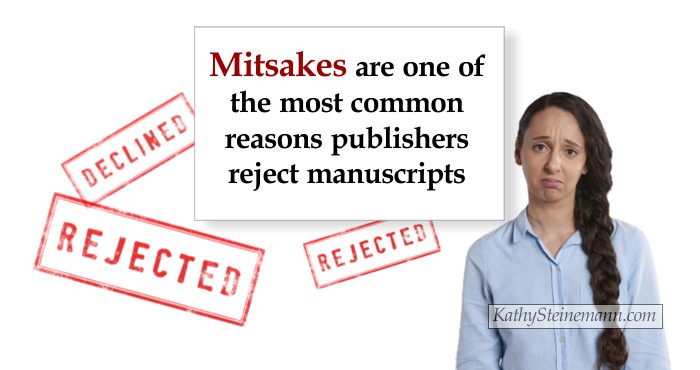
This guest post by Nikolas Baron describes how writers can get their names in print by using three simple techniques.

—
Three Surefire Ways for Writers to Get Their Name in Print
As every actor desires to see his name in lights, so every writer wants to see his name in print. This is easier said than done. Most query letters are met with rejection. How can you produce writing that editors want to publish? Through my work at Grammarly, I have studied how people write and what tools they use. I have seen writers learn to improve their writing skills, transforming previously rejected manuscripts into accepted publications. Can you follow their footsteps? Here are three proven ways to become a successfully, published writer.
#1. Solid Writing
Why do people read fiction? They want to be entertained. They want to imagine the story as it takes place. When the plot and characters are well-crafted, the readers follow their moves with anticipation. Realistic dialogue helps build believable characters. If readers relate to the characters, they form an emotional attachment to them, they care what happens to the characters. To learn to create the elements of a great plot, attend a creative writing class or workshop. You will learn the basics of plot structure, characterization, and conflict.
Note: If you incorporate current facts that have practical value, your writer will enjoy the novel and benefit from reading it.
#2. Error-free Documents
Mistakes are one of the most common reasons why publishers reject manuscripts. A novel full of errors suggests a careless author. What editor wants to work with someone who does not take the time and effort to proofread? Even if you write quickly to get the ideas down, scour your work carefully for problems before showing it to anyone.
If grammar is not your forte, use online proofreading services to support your efforts. According to the Fiction Factor blog, editors frown upon passive voice. It is not a grammatical mistake, but you should replace it with active voice in most instances. Active voice adds an element of excitement, drawing the reader into the story. When your story is complete, hire a developmental editor to make a final edit and check that the storyline flows logically.
The Writer’s Lexicon series
and additional resources on my Facebook page.
#3. Perseverance Through Setbacks
One Bible proverb states: “Sow your seed in the morning and do not let your hand rest until the evening; for you do not know which will have success, whether this one or that one, or whether they will both do well.” (Ecclesiastes 11:6, New World Translation). The modern day interpretation: Send out many query letters. You do not know where you will have success!
This does not mean the process is indiscriminate. A farmer takes note of soil conditions before he plants a crop. Likewise, choose publishers that cater to your genre. If you mail numerous proposals, you increase the likelihood that you will find the right publisher for your work. If you receive a rejection notice, review the comments, make adjustments where necessary, and submit the revised work to the same publishing house, or look for another suitable prospect.
The Formula for Successful Writing Is Not a Magical One
Hard work and determination propel good work toward publication. Develop your skill so that your writing is worthy of attention by a publisher. Use tools and the talents of a developmental editor to eliminate errors from your document. Contact numerous publishers, but do not become dejected when you experience rejection. Take any pointers they give you, revise, and send your manuscript again. By heeding these three points, you will increase the quality of your stories. Soon, you will see your name in print!
© Copyright Nikolas Baron
—
By Nikolas Baron
Nikolas discovered his love for the written word in elementary school, where he started spending his afternoons sprawled across the living room floor devouring one Marc Brown children’s novel after the other and writing short stories about daring pirate adventures. After acquiring some experience in various marketing, business development, and hiring roles at internet startups in a few different countries, he decided to re-unite his professional life with his childhood passions by joining Grammarly’s marketing team in San Francisco. He has the pleasure of being tasked with talking to writers, bloggers, teachers, and others about how they use Grammarly’s online proofreading application to improve their writing. His free time is spent biking, travelling, and reading.
The Writer’s Lexicon series
and additional resources on my Facebook page.
Discover more from KathySteinemann.com: Free Resources for Writers
Subscribe to get the latest posts sent to your email.
